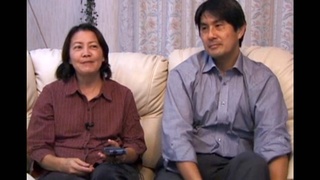Interviews
Conflict between Japanese and Western culture
Around you, the Western culture says you should speak your mind. You should have your own opinion and be able to support it. Whereas, in the Japanese style, it’s like you have to think of what the others will say or you have to think about the others – what other people will say. You have to be maybe not as outspoken. So there was a conflict at one time. But I guess over the years, you sort of find how to blend the two together, whether it’s called maturity or acceptance, I don’t know which it is. But you learn that there are times when you have to...what other people might call “be Japanese” because you try to find a common opinion. Whereas other times you have to be strong enough to say, No, I think this is how it should be.
Date: November 8, 2003
Location: Tokushima, Japan
Interviewer: Art Nomura
Contributed by: Art Nomura, Finding Home.








